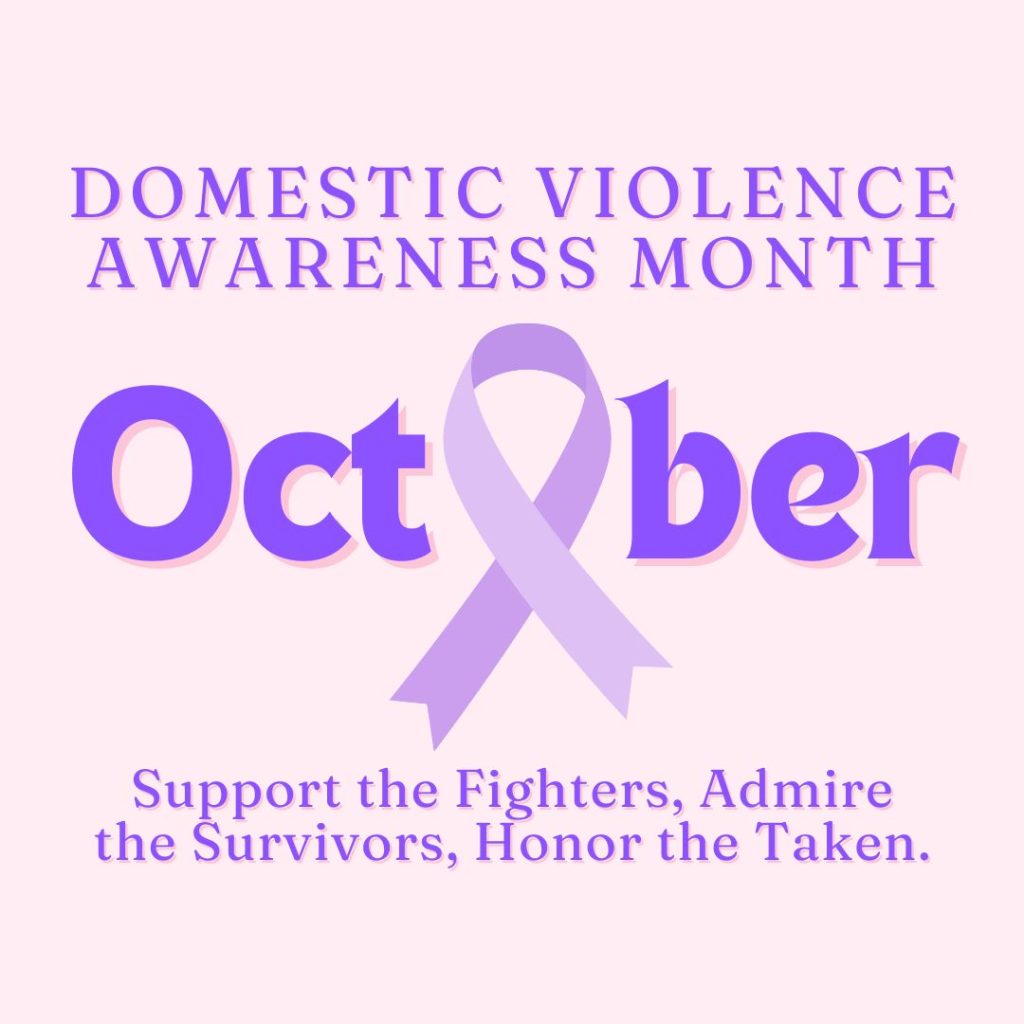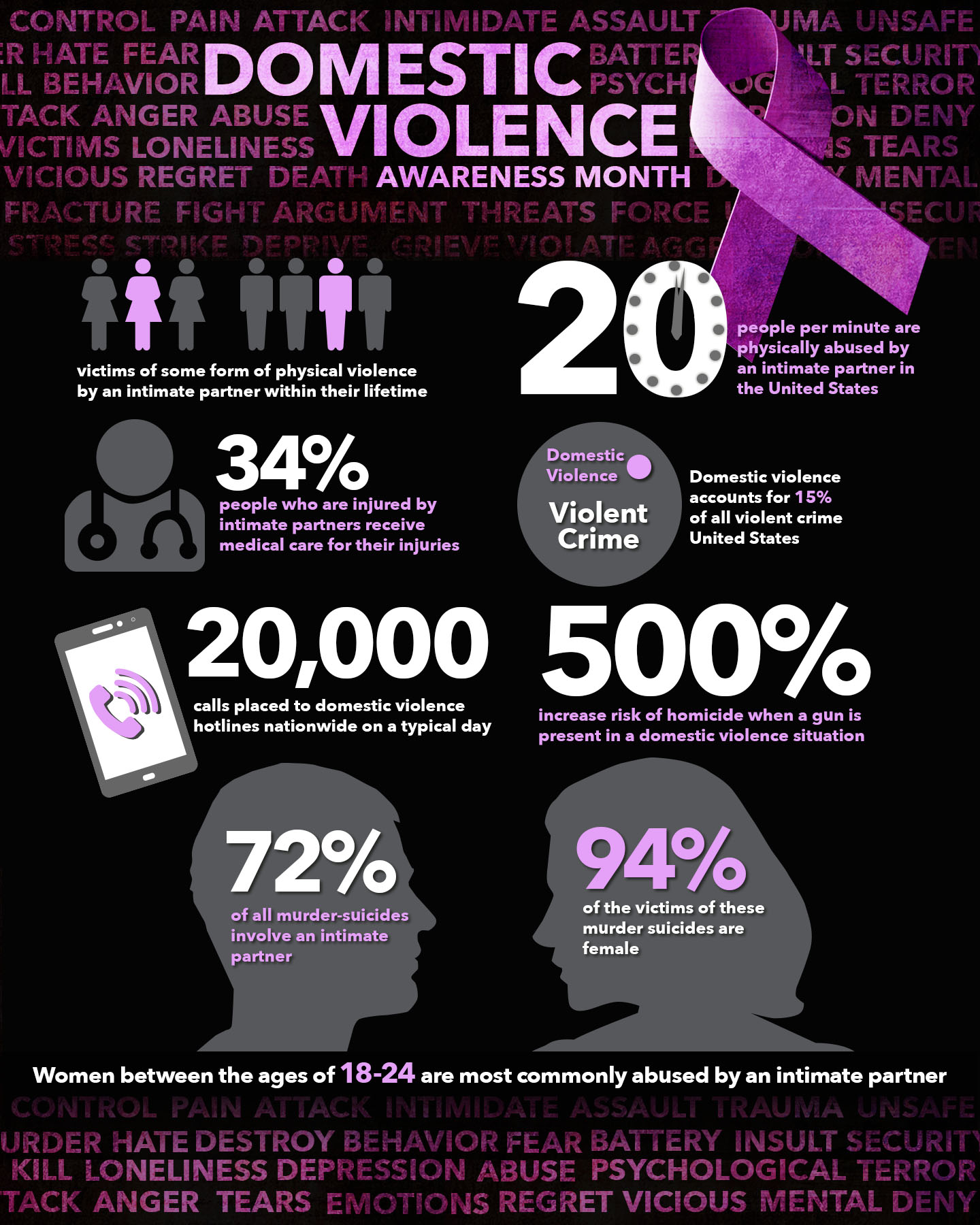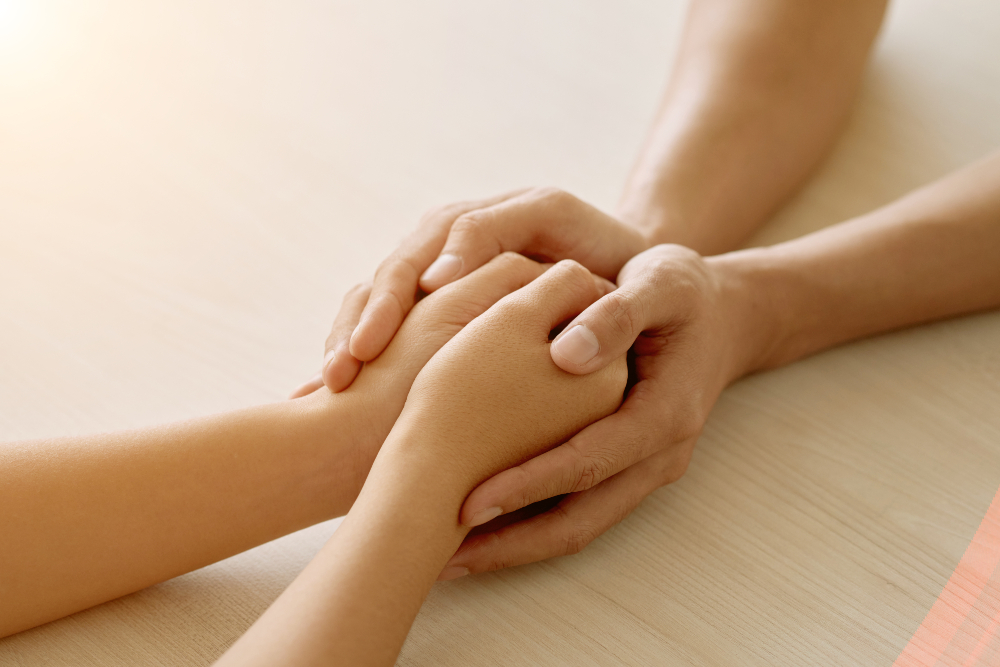October is Domestic Violence Awareness Month
in Local Events, Local News, Massachusetts News, National News

Domestic Violence Awareness Month
This month is dedicated to raising awareness about the issues of domestic violence, honoring those who have lost their lives, supporting survivors, and mobilizing communities to take action against this pervasive issue.
Cycle of abuse
The cycle of abuse is a pattern often seen in abusive relationships, characterized by four distinct stages:
- Tension Building: During this phase, stress and strain begin to mount. The abuser may become increasingly irritable, angry, or impatient. The victim often feels like they are “walking on eggshells,” trying to prevent an outburst.
- Incident: This stage involves the actual abusive episode, which can be physical, emotional, or psychological. The abuser releases built-up tension through aggressive behavior, such as hitting, yelling, or manipulating.
- Reconciliation: After the incident, the abuser may apologize, make excuses, or promise that it will never happen again. They might show affection, buy gifts, or otherwise try to make amends, creating a “honeymoon” period.
- Calm: During this phase, the relationship appears to return to normal. There is a temporary respite from the abuse, and the victim may hope that the abuser has changed. However, this calm period is often short-lived, and the cycle eventually begins again.
The correlation between substance use and domestic violence
Unhealthy relationships can significantly contribute to substance or alcohol use issues in several ways:
- Emotional Stress & Trauma: Toxic relationships often involve emotional abuse, manipulation, and chronic stress, which can lead individuals to use substances as a coping mechanism to numb their pain or escape reality.
- Codependency: In some relationships, one partner may become excessively reliant on the other, often leading to codependent behaviors. This dynamic can foster an environment where substance abuse is either enabled or used as a means to maintain control.
- Peer Pressure and Influence: If a partner or close friend uses substances, they might encourage or pressure the other person to join in, either directly or indirectly, to maintain the relationship or avoid conflict.
- Isolation and Loneliness: Unhealthy relationships can isolate individuals from their support networks, making them more vulnerable to turning to substances for comfort and companionship.
- Escalation of Negative Behaviors: Substance use can exacerbate the negative aspects of a toxic relationship, leading to a vicious cycle where the relationship and substance use issues feed into each other.
How to support a loved one who is experiencing domestic violence
Supporting a loved one experiencing domestic violence can be challenging, but your support can make a significant difference. Here are some ways you can help:
- Listen and Believe: Let them share their story without judgment. Believe what they tell you and validate their feelings.
- Offer Emotional Support: Reassure them that they are not alone and that the abuse is not their fault. Be patient and understanding.
- Provide Information: Help them understand their options, such as contacting local shelters, hotlines, or legal resources. Offer to help them research these options.
 Respect Their Decisions: They may not be ready to leave the situation immediately. Respect their choices and continue to offer support.
Respect Their Decisions: They may not be ready to leave the situation immediately. Respect their choices and continue to offer support.- Safety Planning: Assist them in creating a safety plan, which might include packing an emergency bag, having a safe place to go, and knowing important phone numbers.
- Encourage Professional Help: Suggest they speak with a counselor or join a support group for survivors of domestic violence.
How can I show my support and advocacy during Domestic Violence Awareness Month?
- Wear Purple: Purple is the color of this specific month. Wearing purple, especially on designated days like “Purple Thursday,” shows solidarity with survivors.
- Spread Awareness: Use social media to share information about domestic violence, its signs, and resources available for survivors.
- Participate in Events: Attend or organize events such as vigils, panel discussions, or fundraisers. These events help educate the community and honor survivors.
- Volunteer: Offer your time at local shelters or organizations that support domestic violence survivors. Your help can make a significant difference.
- Donate: Contribute to organizations that provide services to survivors. Some employers may match your donations, doubling your impact.
- Educate Yourself and Others: Learn about the signs of domestic violence and how to support someone experiencing it. Share this knowledge with friends and family.
Domestic Violence Resources:
- Alternative House (Lowell, MA): Provides 24/7 confidential support through phone and provides immediate assistance. Call 1-888-291-6228 or visit Survivors of Domestic Abuse | Alternative House | Lowell (alternative-house.org).
- National Domestic Violence Hotline: Provides 24/7 confidential support through phone, text, and chat. Call 1-800-799-SAFE (7233) or visit thehotline.org.
- SafeLink: Provides 24/7 confidential support through phone, text, and chat. Call 1-877-785-2020 or visit SafeLink : Casa Myrna.
